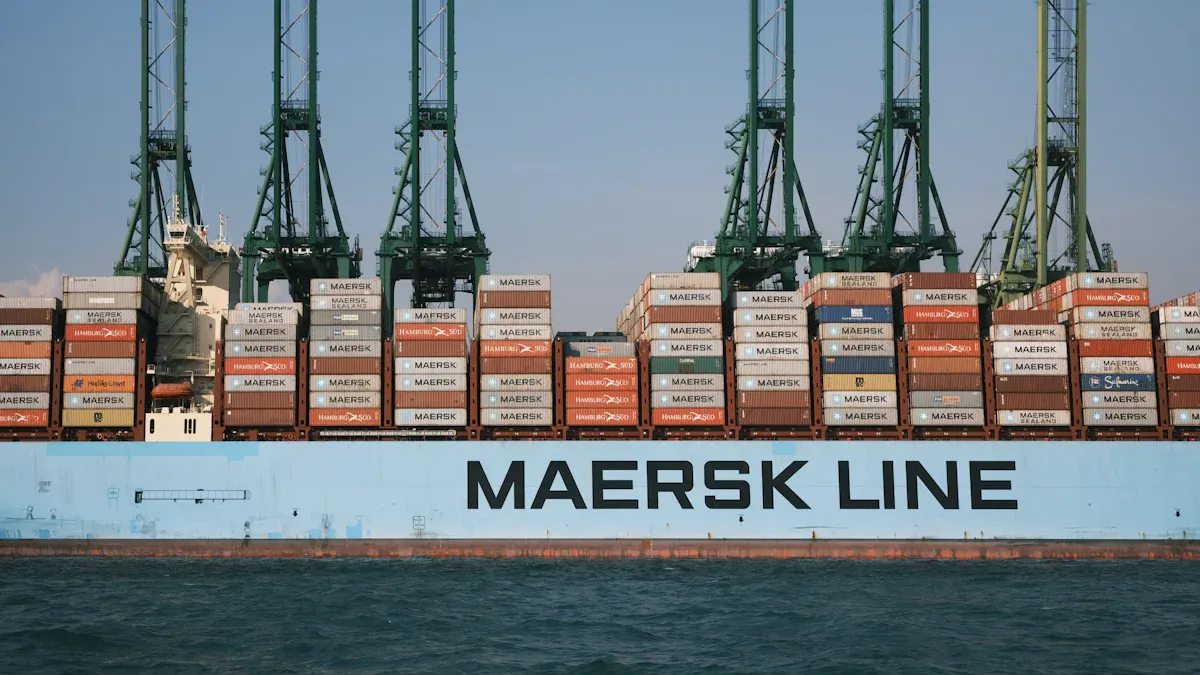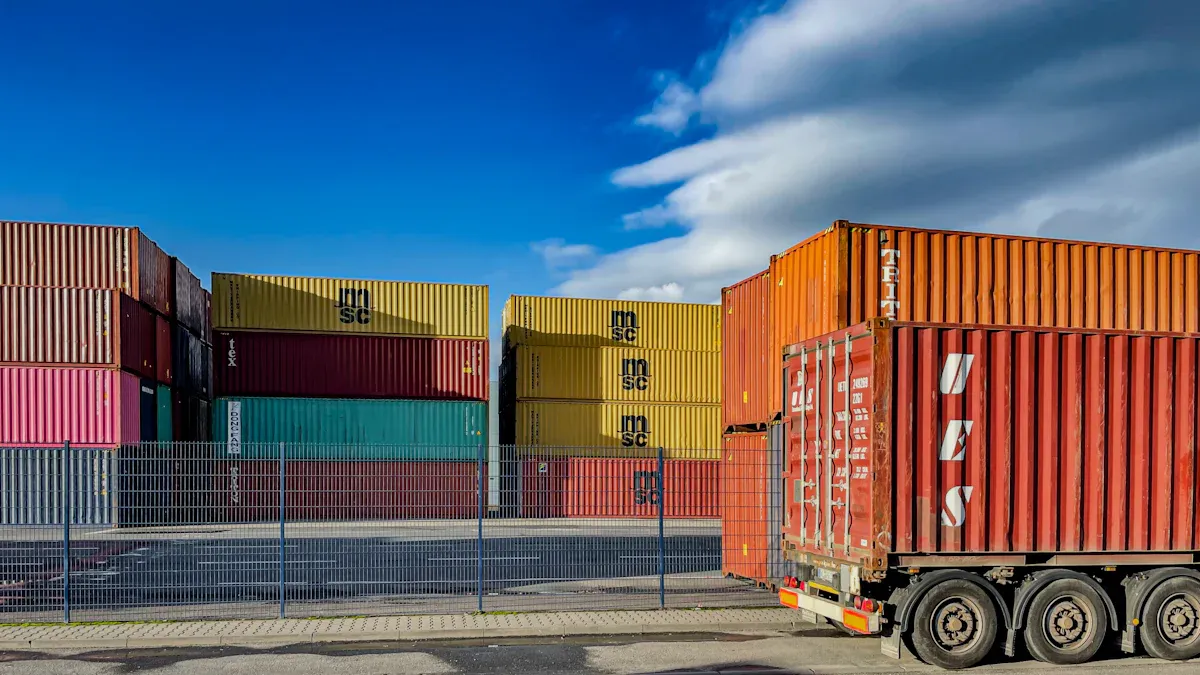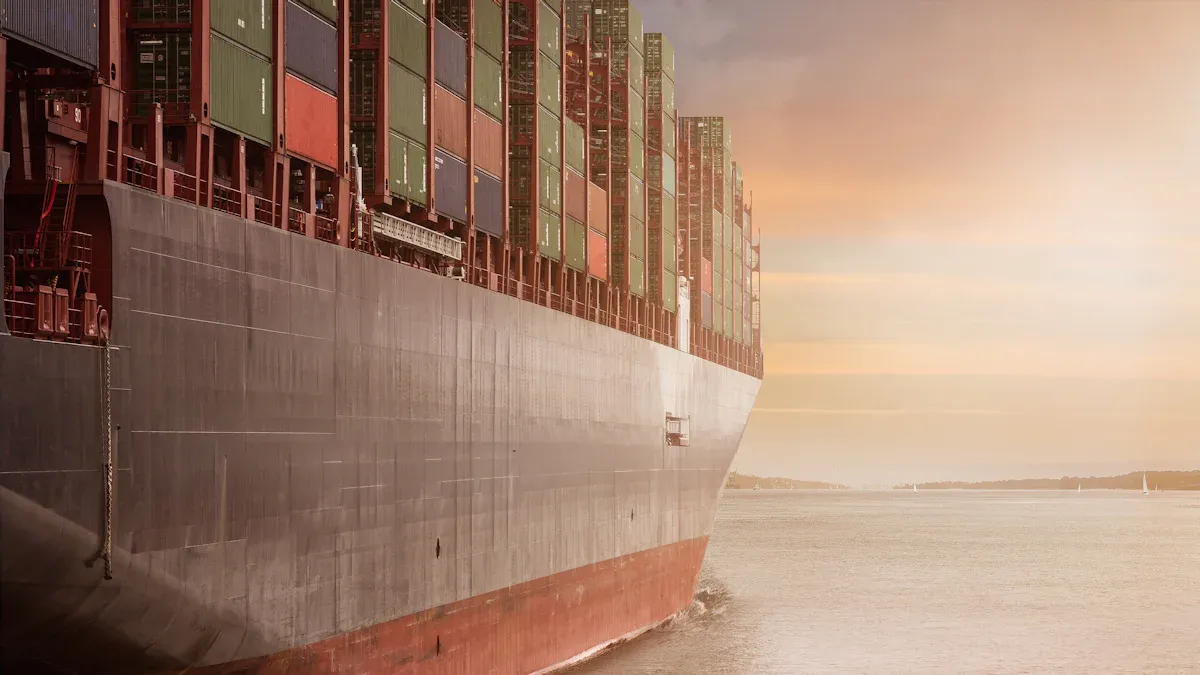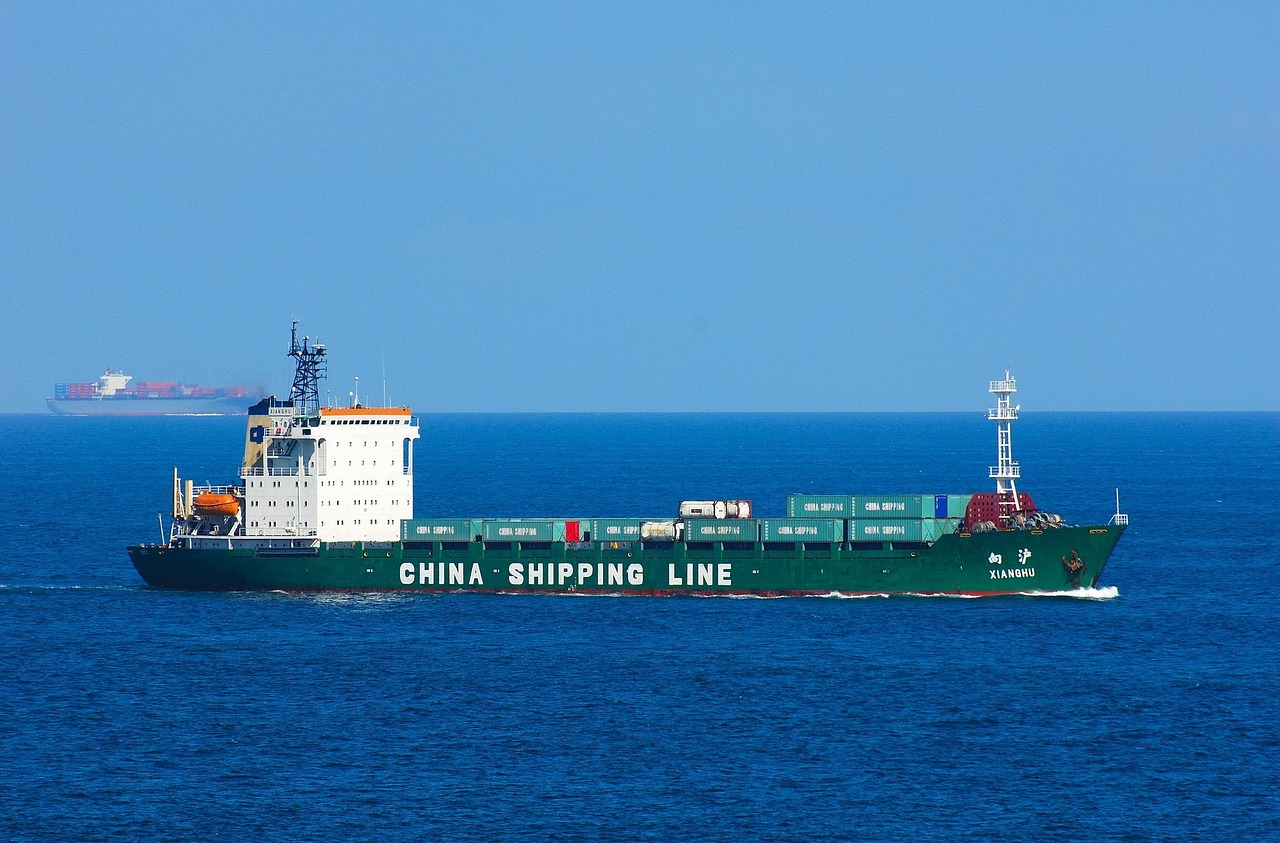2025 EXW and DDP: Making the Right Call Amid Tariff

Choosing the appropriate Incoterm is essential for businesses navigating tariff risks, especially when considering EXW VS DDP. Under EXW, all costs and risks are transferred to the buyer as soon as the goods are available at the seller’s premises. In contrast, DDP obligates the seller to manage customs duties and import documentation. This choice significantly influences costs, control, and risk exposure during periods of tariff increases or trade disputes.
EXW vs DDP: Key Differences

What is EXW?
EXW, or Ex Works, means the seller fulfills their obligation once they make the goods available at their premises. After that, the buyer takes over responsibility for everything: loading, transportation, customs clearance, insurance, and final delivery.
Role | Responsibilities |
|---|---|
Seller | - Prepare and package the product for export. |
- Make the product available at their premises. | |
- Inform the buyer about the readiness of the goods. | |
Buyer | - Load the goods onto transport. |
- Organize and pay for transportation to the final destination. | |
- Arrange necessary licenses and permits. | |
- Handle customs clearance for export and import. | |
- Cover all customs-related costs and fees. | |
- Unload the goods at the destination. |
Tip:
EXW is ideal for buyers who have strong logistics capabilities. Without experience, however, unexpected costs and logistical challenges can arise.
What is DDP?
DDP, or Delivered Duty Paid, is the opposite. The seller takes care of almost everything—from transportation and customs clearance to duties, taxes, and final delivery to the buyer’s site.
Seller’s Responsibilities under DDP:
Arrange and pay for international transport.
Complete export and import customs clearance.
Pay duties, taxes, and related charges.
Arrange insurance during transit.
Ensure safe and timely delivery to the buyer.
Aspect | Details |
|---|---|
Definition | Seller delivers to the buyer’s location, covering all costs and risks. |
Seller’s Role | Handles transportation, customs, insurance, taxes, and final delivery. |
Liability | Seller bears all risks until goods are delivered. |
Tip:
DDP is perfect for buyers who want a hands-off experience but requires sellers to manage complex logistics and higher financial risks—especially when tariff rates change.
Compare the two in terms of cost, risk, and control
The choice between EXW and DDP depends on how a business prioritizes cost, risk, and control. Each Incoterm has distinct implications:
Incoterm | Responsibilities | Risk Implications | Control | |
|---|---|---|---|---|
EXW | Buyer assumes responsibility from seller’s premises. | Lower costs for the seller; buyers may face unexpected expenses. | All risks transfer to the buyer once goods leave the seller’s premises. | Buyers have full control over the shipping process. |
DDP | Seller delivers to the buyer’s location, covering all costs. | Higher costs for the seller due to duties, taxes, and logistics. | Sellers bear all risks until the goods reach the buyer. | Buyers enjoy convenience but have limited control. |
Under EXW, buyers benefit from greater control over the shipping process but must manage complex logistics and customs procedures. This can lead to higher costs if they lack expertise. Conversely, DDP simplifies the process for buyers by transferring all logistical responsibilities to the seller. However, sellers face increased financial and operational risks, particularly during tariff increases.
Insight: Businesses must weigh the trade-off between control and convenience when choosing between EXW and DDP. For example, companies with robust logistics teams may prefer EXW, while those seeking simplicity might opt for DDP.
Choosing the Right Incoterm for Your Business

How Business Size and Resources Matter
Small and medium-sized businesses often choose DDP to simplify their import process and focus on growing their core business.
Larger corporations with strong logistics teams typically prefer EXW to better manage transportation and reduce costs.
Tip:
Your choice should align with your company’s capabilities and risk tolerance.
How Tariff Risks Affect Your Decision
When international tariffs fluctuate, they impact cost responsibilities:
Under EXW, buyers must absorb any tariff increases.
Under DDP, sellers bear the tariff risks and extra costs.
Tip:
Adding clear terms in the contract, such as tariff adjustment clauses, can help protect both parties from sudden changes.
Cost Considerations
EXW: Lower upfront cost for sellers, but higher potential risks and expenses for buyers.
DDP: Higher upfront cost for sellers, but offers buyers a predictable, all-inclusive price.
Control vs Convenience
EXW: Offers maximum control to buyers.
DDP: Provides maximum convenience for buyers.
Insight:
If controlling transportation and customs is important, EXW is better. If simplifying the process matters more, DDP is the way to go.
When to Choose EXW
You have an experienced logistics team.
You want to control transportation, customs clearance, and costs.
You can manage insurance and tariffs independently.
You are comfortable negotiating freight and handling unexpected issues.
Example:
A multinational sourcing raw materials might choose EXW to leverage their in-house logistics expertise.
When to Choose DDP
You prefer a turnkey, all-inclusive solution.
You want to minimize the administrative burden.
You prefer predictable costs without surprise fees.
You lack the manpower or resources to manage international shipping.
Example:
A startup importing consumer electronics might choose DDP to focus on marketing and sales, leaving logistics to the experts.
Quick Decision-Making Guide
Importers vs Exporters: Importers usually prefer DDP; exporters lean toward EXW.
Goods Type: DDP suits consumer products; EXW fits heavy machinery or B2B goods.
Experience: Choose EXW if you have a strong logistics team; choose DDP if you don't.
Risk Tolerance: EXW for those who can manage risks; DDP for those who want to avoid them.
Ready to optimize your shipping strategy?
YQN’s professionals are proficient in all Incoterms and shipping terms, including EXW, DDP, CIP, and beyond.
Contact our logistics experts at info@yqn.com today and take your supply chain to the next level!
FAQ
What is the main advantage of DDP shipping for buyers?
DDP shipping simplifies the process for buyers by transferring all customs, documentation, and tariff responsibilities to the seller. This ensures convenience and reduces operational complexities.
How do tariffs impact DDP shipments?
Tariffs increase the financial burden on sellers managing DDP shipments. Sellers must account for these costs when calculating the total price for buyers.
Is EXW better than DDP for shipping from China?
EXW benefits buyers with strong logistics capabilities when shipping from China. DDP, however, suits buyers unfamiliar with customs procedures or those seeking a hassle-free import process.
See Also
Leveraging Bonded Warehouses to Lower US Tariffs in 2025
Complete Overview of the 2025 US–Canada Tariff Schedule
Five Strategies for Supply Chains Amid China’s Tariff Response
Impact of US Tariff Suspension on Asian Exporters and Supply Chains

Shipping with YQN - Global Logistics at Your Fingertips
YQN has established subsidiaries worldwide, covering North America, Latin America, Southeast Asia, and the Middle East. We have partnered with 300+ top shipping and airline companies and have access to 3500+ high-quality supplier resources. YQN also has a professional customer service and fulfillment team of over 500 people to provide more worry-free and efficient international logistics services.
Contact Us
You can also email us at info@yqn.com.

